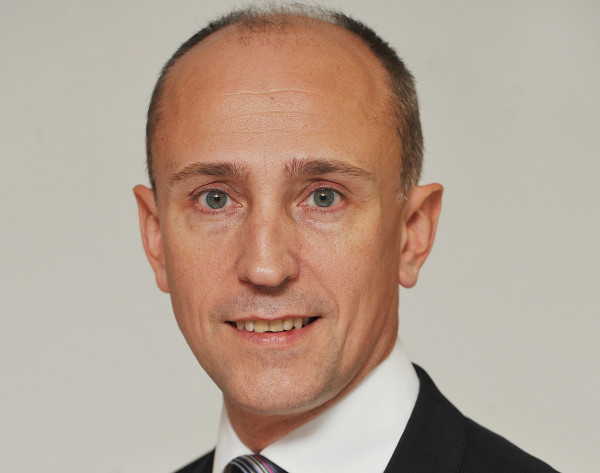

The UK financial services market which has historically been slow to embrace technological innovation is a growth area for the Australian firm, according to David Simpson, head of EMEA for GBST.
Analysis of the technology company’s latest financial report (to 30 June 2016) illustrates the value of the UK market to its wealth management business.
Despite a year-on-year fall of 12 per cent in UK revenue – which the company attributed to project deferrals, adverse foreign exchange movements and delays from industry consolidation – it accounts for around two thirds ($43.9m, £27m) of GBST wealth management business ($61.7m, £37.9m).
GBST has come a long way since its launch in 1983 under the guise of Star Systems.
The firm listed on the Australian Securities Exchange in 2005 and further broadened its capabilities through the acquisitions of four companies that were active in the financial services technology and digital design consultancy spaces.
Most notably, in 2007, GBST acquired InfoComp which was the leading provider of funds administration and registry software to the Australian wealth management industry, according to Mr Simpson.
The amalgamation saw the addition of a number of products to GBST’s repertoire – including Composer, which ultimately became the underlying technology of platforms offered by Alliance Trust Savings, Aegon and Novia Global, among others.
GBST ushers in its landmark 10th anniversary since the launch of Composer to the UK market by holding the reins to one of the most significant projects in the platform industry to date: the integration of the Cofunds platform onto Aegon’s Arc platform.
This followed the latter’s £140m acquisition of the former L&G owned platform.
Mr Simpson said: “Aegon organised itself prior to the Cofunds acquisition. They made the necessary change quickly and efficiently.
He added: “Once you are organised for success, then comes the scale game. Scale drives value, volume and profit. Aegon is not the only one that is benefitting from the opportunity to consolidate. I think there will be a lot more consolidation of platforms to come.”
GBST estimates the venture along with other new client wins – including Retirement Advantage – has increased its market share to more than 40 per cent of the UK platform market.
Mr Simpson also points to the struggle for platforms to achieve decent margins because of the cost of re-registering assets, for example, as a key factor behind consolidation.
As technology providers of other platforms, confidentially is paramount, according to Mr Simpson, adding: “We have to be careful with this. There is no mixing of client data or client requirements. Everything is kept separate. We have user groups where – because we take on the burden of regulatory change – we talk about things like the Lifetime Isa.
“The idea is everyone will sit down and help define the requirements and we would then go away and implement it. Generally, there should be a lot of commonality with some of this capability.
“If someone says they want to do something unique, we can configure it so that it is only available to them and exclusive to them as well.”
The underlying technology of all platforms managed by GBST operates under a single code base, which, Mr Simpson said, offers a competitive advantage as it allows existing systems to be updated in one fell swoop.
He added: “As we change the technology, everyone takes the benefits along the way. You do not have to re-platform yourself to see the benefits. We see that as a unique selling point of our approach, whereas other competitors have bought new solution and try to consolidate the systems.”
The upgrade process is constant and between 19 and 20 per cent of the company’s revenue is invested in research and development.
The advent of the retail distribution review and, not least, the pension freedoms has forced GBST to put some of its more “exciting” upgrades on the backburner, Mr Simpson said.
One of these is an augmented user face. He said: “We have been making our products more modular and have been wrapping an enhanced integration layer around it. This means that we can start to build for clients a very thin user experience that does not need a lot of logic and is easy to adapt and quick and cheap to take to market."
Mr Simpson was coy on whether UK clients had displayed an appetite to adopt its ‘robo’ proposition.
He said: “I think the combination of human interaction and the computer can deliver a very good service to clients. I’m not sure that one without the other is the perfect answer in this stage. Hybrid with technology as an enabler to enhance the advice process is going to be a successful model.”
Myron Jobson is a features writer for Financial Adviser
DAVID SIMPSON'S CAREER LADDER
July 2016 - current
Head of EMEA, GBST
June 2014 – June 2016
Chief relationship officer, SEI
October 2010 – June 2014
Business development director, SEI
1988 – September 2010
Various roles, including managing director, UK Asset Management (January 2004 – September 2010)
Barclays Wealth



